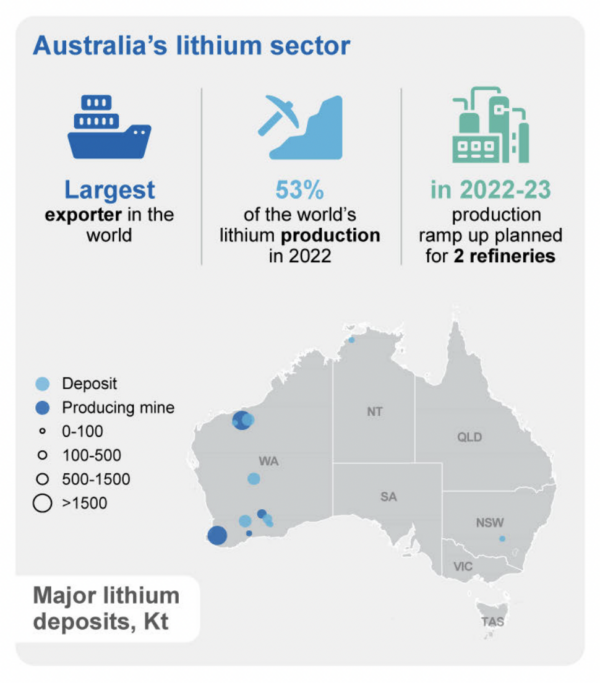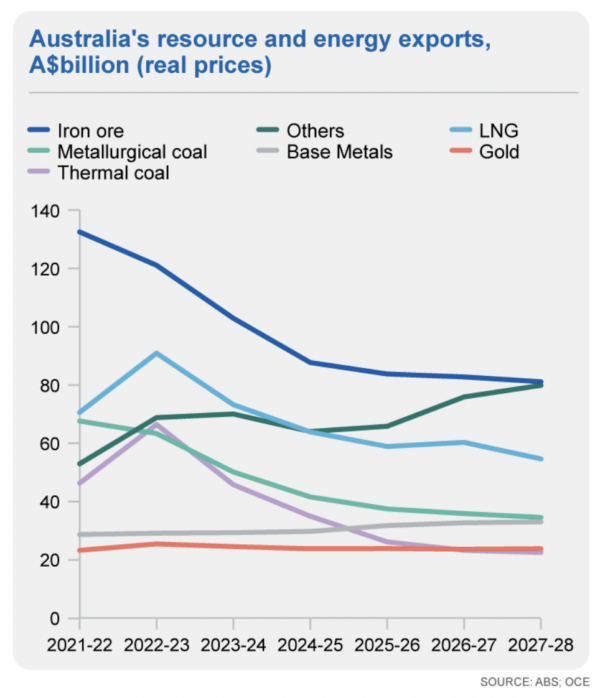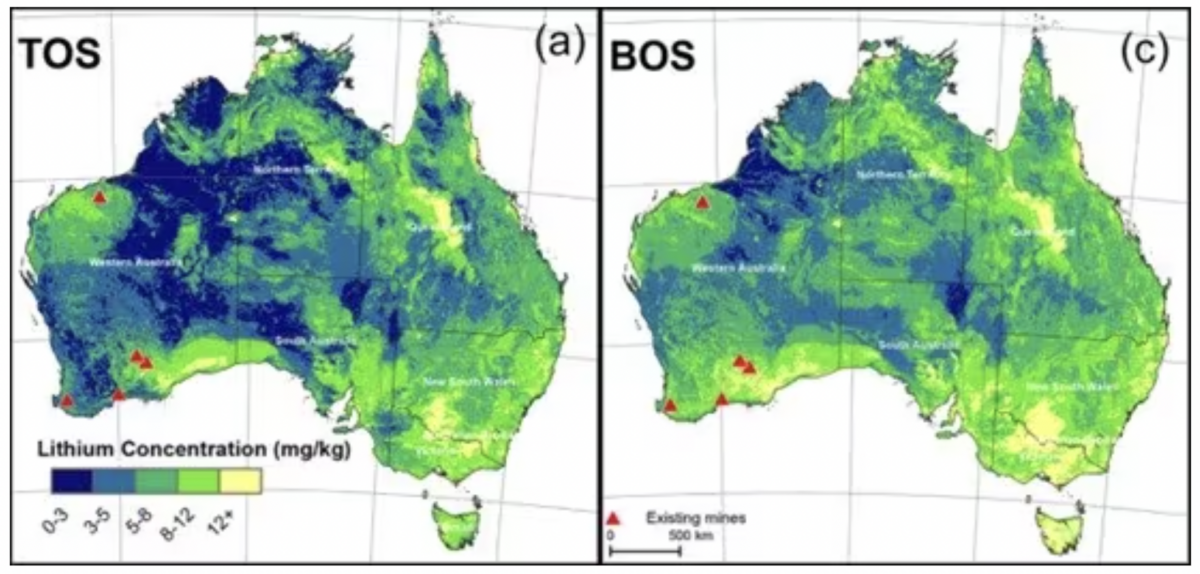To date, Australia’s lithium exploration has predominantly centred in Western Australia, but new research suggests there is strong potential in other regions.
Led by researchers from the University of Sydney with co-authors from federal government agency Geoscience Australia, the team’s findings suggest elevated predicted lithium densities in soils across the central western region of Queensland, southern New South Wales and parts of Victoria.
“We’ve developed the first map of lithium in Australian soils which identifies areas with elevated concentrations,” the study’s senior author Professor Minasny said. He added the findings could have significant implications for the lithium industry in Australia.

Image: Australian government's Resources and Energy Quarterly
The team used digital soil mapping techniques developed at the University of Sydney to gauge extractable lithium content present in soil samples collected across Australia.
While the highest lithium concentrations were found near the Mount Marion deposit of Western Australia (WA), the study suggests potential lithium sources in Australia spread well beyond the popular WA exploration region.
“The map agrees with existing mines and highlights areas that can be potential future lithium sources,” Professor Minasny said.

Image: Australian government, Resources and Energy Quarterly report
The research aimed to paint a comprehensive overview of lithium distribution across Australia, noting this is influenced by a variety of environmental factors including climate, geology and vegetation.
The study was published in the journal Earth System Science Data.
This content is protected by copyright and may not be reused. If you want to cooperate with us and would like to reuse some of our content, please contact: editors@pv-magazine.com.









By submitting this form you agree to pv magazine using your data for the purposes of publishing your comment.
Your personal data will only be disclosed or otherwise transmitted to third parties for the purposes of spam filtering or if this is necessary for technical maintenance of the website. Any other transfer to third parties will not take place unless this is justified on the basis of applicable data protection regulations or if pv magazine is legally obliged to do so.
You may revoke this consent at any time with effect for the future, in which case your personal data will be deleted immediately. Otherwise, your data will be deleted if pv magazine has processed your request or the purpose of data storage is fulfilled.
Further information on data privacy can be found in our Data Protection Policy.